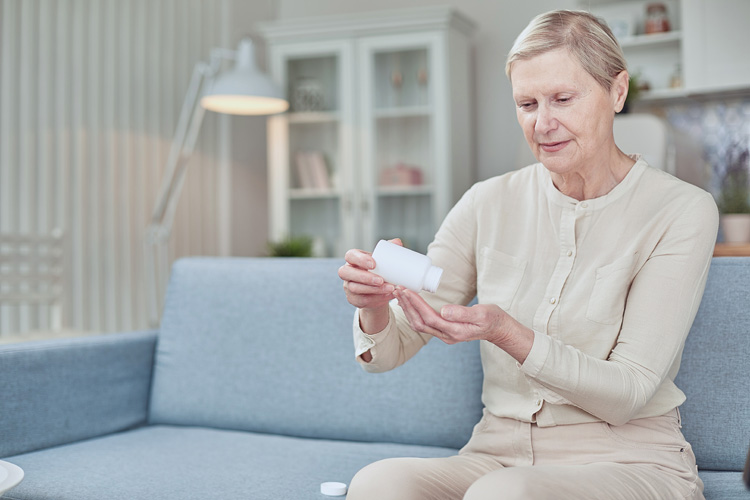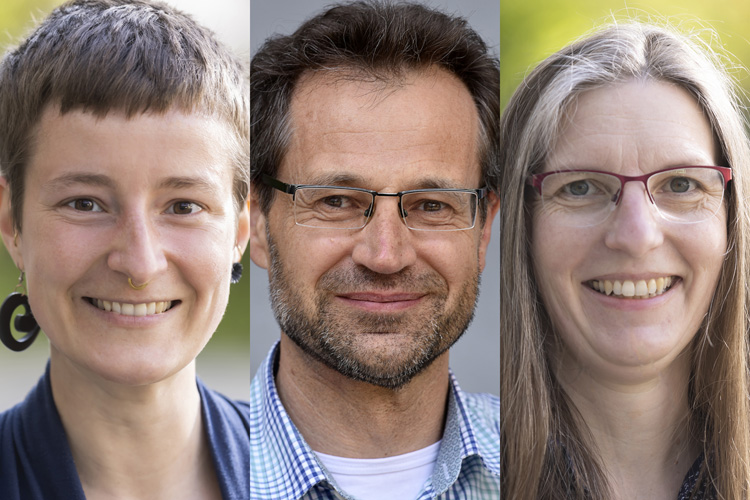Beyond Medication
Freiburg, Mar 14, 2023
Prof. Dr. Michael Müller is committed to sustainable pharmacy - and likes to answer questions by posing his own. In this way, he wants to encourage his counterpart not to just ask and find out things, but to actively think along with him, to reflect on his or her own position and to recognize the larger context. This was also the case when he was asked what he meant by the term “sustainable pharmacy.” “So here's my question to you: is that capitalized or lowercase?" counters Müller. "There can be no such thing as sustainable pharmacy in lowercase letters because pharmaceutical intervention always serves the individual,” explains the Professor of Pharmaceutical and Medicinal Chemistry at the University of Freiburg. “Sustainable Pharmacy in capital letters, on the other hand, describes a principle. It’s about a holistic view of pharmacy. It’s about the simultaneous inclusion of pharmacological, ecological, economic and social aspects in pharmacy and its development, in order to provide effective treatment of diseases for as many people as possible in the most diverse realities of life.”
 The focus should not be on the drug, but on the person. In Freiburg, students take a holistic approach to pharmacy. Photo: Adobe Stock/Qwenergy
The focus should not be on the drug, but on the person. In Freiburg, students take a holistic approach to pharmacy. Photo: Adobe Stock/Qwenergy
In view of the significantly increased interest in sustainability strategies in politics, business and society, one might take it for granted that the principle of sustainability has long played an important role in pharmacy as well. However, the debate here has so far been limited to issues relating to “green” pharmacy such as environmental protection, eco-efficiency or the resource-conserving production of basic materials for medicines. “Green pharmacy is not synonymous with sustainable pharmacy,” says Müller. In fact, sometimes it is even the opposite,” such as when, for example, the environmental aspect pushes questions of distributive justice out of the picture.
Economy for the common good and pharmaceutical residues
At the suggestion of Karina Witte, a graduate pharmacist and doctoral student in Müller's Biocatalysis and Biosynthesis research group, a special lecture on this topic was now held for the first time in the 2020/2021 winter semester. In addition to Witte and Müller, Petra Mußler was also part of the team, responsible for coordination and evaluation. The series of events with seminar character offered Freiburg students of pharmacy and related subjects the opportunity for the first time to learn about and discuss aspects of sustainability across disciplines. The spectrum of topics is broad, ranging from the economy of the common good to drug therapy, from the impact of the climate crisis on health to the issue of pharmaceutical residues in groundwater and drinking water. “Yesterday’s solutions are often today’s problems,” Witte explains. “Sustainable pharmacy must consequently always consider its potential effects both inside and outside the pharmaceutical field.” The task of universities, he says, is therefore to enable students to form a picture of the current situation in all its complexity in a dynamic world, to critically question general and their own actions, and to actively make decisions on this basis.
The study of sustainability issues in pharmacy has a long history in Freiburg. In 2008, the environmental chemist Prof. Dr. Klaus Kümmerer introduced the concept of sustainable pharmacy into the scientific discourse in Freiburg for the first time. This developed into a research network funded by the German Federal Environmental Foundation (DBU), in which Kümmerer was involved, as well as in another project on questions of sustainability in the everyday life of pharmacies, which was commissioned by the German Federal Environmental Agency. At the same time, the close exchange between Müller, the Freiburg moral theologian Prof. Dr. Eberhard Schockenhoff and the legal scholar Prof. Dr. Andreas Voßkuhle resulted in an interdisciplinary ethics seminar. Finally, decisive impulses for the module "Ethics and Sustainability," which emerged from this in 2018, were provided by the book "Prinzip Nachhaltigkeit," in which the Munich theologian and social ethicist Prof. Dr. Markus Vogt postulated a social transformation: "The ethical-political architecture of modernity has begun to falter. A climate-compatible transformation of the concept of progress, a model of prosperity capable of globalization and an integration of market and morality are essential conditions for a just world society. The search for this is bundled in the principle of sustainability."
Witte, who during a six-month research stay in Lucknow, India, experienced first hand the enormous consequences that social inequality and the ever-widening gap between rich and poor have on the healthcare system, is convinced that the guiding principle of sustainable pharmacy must also be implemented in teaching. For the researcher, this includes not only developing better, more ecologically and socially compatible medicines and thinking about these criteria in advance, but also specifically promoting prevention, health education and alternatives to drug therapy. “The purpose for the field of pharmacy is to focus on the person, not the drug," Witte says. “The challenge is to remind ourselves that pharmacy as a specialty is part of a solution for a healthy population.” And not just in Western Europe, but all over the world.
 Karina Witte, Michael Müller and Petra Mußler (from left to right) encourage students to discuss sustainable pharmacy. Photos: Jürgen Gocke, Thomas Kunz
Karina Witte, Michael Müller and Petra Mußler (from left to right) encourage students to discuss sustainable pharmacy. Photos: Jürgen Gocke, Thomas Kunz
Work-intensive lecture
As compelling as the idea of a special lecture on sustainable pharmacy may seem, it is difficult to integrate into the day-to-day teaching of the subject. "The pharmacy course is extremely well structured. There would be no other way to cope with the enormous amount of learning material. And it's a prerequisite for everything else," says Mußler. "Given this narrow curriculum, the combination of social, ecological and economic aspects of pharmacy is not considered enough." Nevertheless, students showed great interest in the special lecture. When Müller, Witte and Mußler announced the event, they expected 15 to 20 participants. In the end, more than a hundred signed up, and 72 of them stayed to the end - despite the considerable effort that the pilot project meant for them. In addition to the one-hour sessions followed by discussions, this included about an hour and a half of preparation time each week, during which they read up on literature on topics such as health promotion or material cycle management. Due to the Corona pandemic, the lecture took place online. The participants first met digitally in small groups to exchange ideas, and then discussed perspectives on what they had learned in the large group.
“Courses in pharmacy usually take place as classroom lectures,” says Mußler. “Interactive online formats are the exception.” They came up with a novel idea of asking students to think about their motivation and learning goals in a kind of profile. After twelve sessions, Mußler, Witte and Müller asked students to summarize their experience. “No one achieved their stated learning goal,” Mußler says with a laugh, “but instead they all learned something more important: that when we talk about sustainability, it’s never about the one, clear-cut solution, but about seeing pharmacy in a larger context, recognizing the possibly ill-considered consequences of our actions or research even outside the pharmaceutical field, and realizing that everyone is jointly responsible for what happens in the future.” Student reactions were extremely positive.
Room for reflection
Today, Müller is pleased to have given in to Witte's urging. In the meantime, the team is getting requests from other universities to present its special lecture concept. “Pharmacy studies leave little room for reflection," he says. "Our lecture has created that space." In more ways than one. Because it is also sustainable: that students are now sensitized to sustainability issues. That they recognize connections and find approaches to intervene in processes in pharmacy in a formative way. And that they will advance the discussion about this and later carry it into their professional lives. Müller, Witte and Mußler are therefore already thinking about repeating the special lecture with a slightly different curriculum so that the workload remains manageable for all participants. And the team also already has a possible long-term goal in mind: “It would be conceivable to develop a separate ‘Sustainable Pharmacy’ profile line in the bachelor’s and master’s degree programs in pharmaceutical sciences,” says Müller. It would allow the topic to be integrated into long-term lesson plans.
Dietrich Roeschmann

